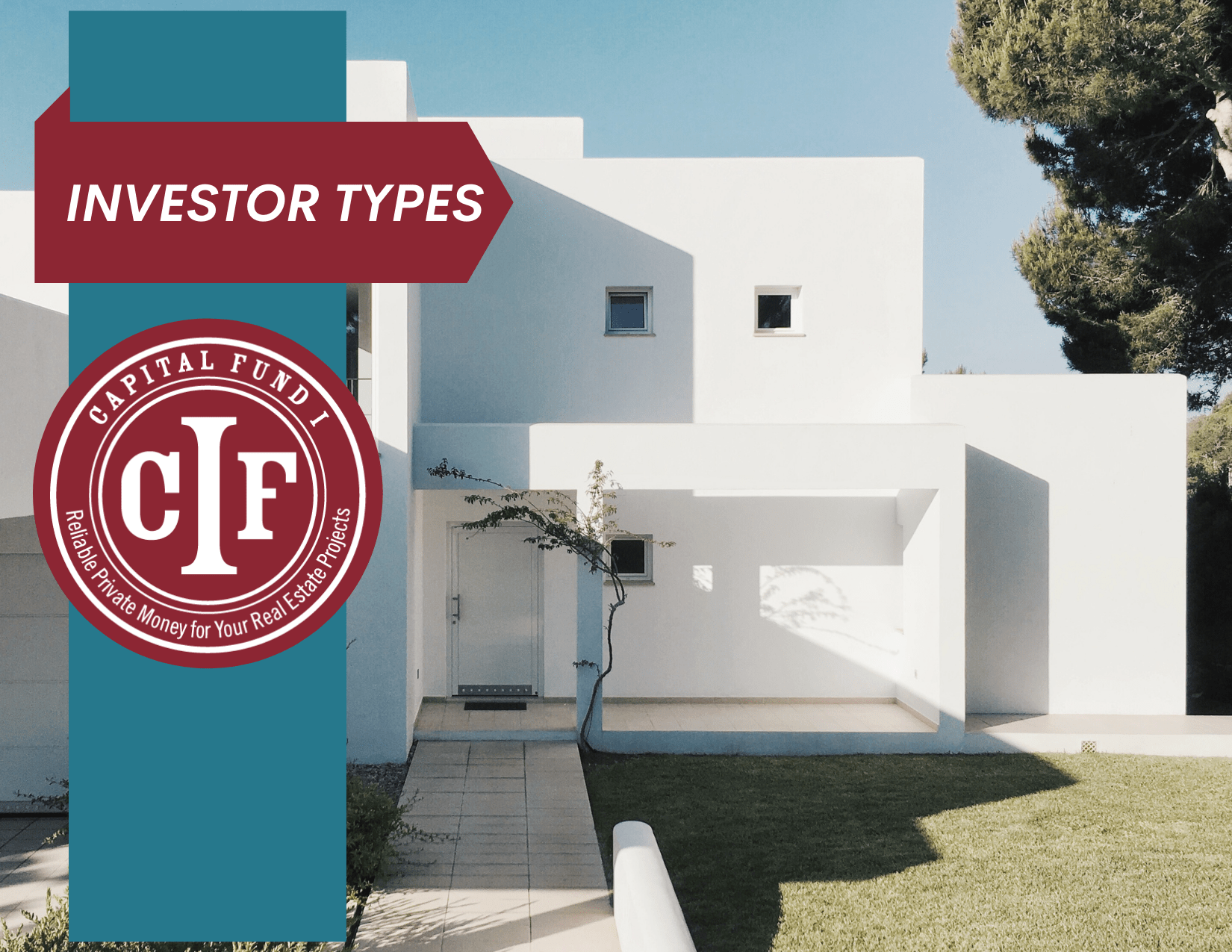Types of Real Estate Investors
Thank you for taking our quiz! We hope it sheds some light on the world of real estate investing and highlights some of your many options. Investing in real estate takes more than watching a few episodes of your favorite Home Improvement show. The industry requires people to be able to adapt at a moment’s notice while also fostering stable relationships with other investors, contractors, and lenders.
To learn more about real estate investing, please follow us @CapitalFund1
Want to retake the quiz or share it? Use this link!
Fix and Flip
You have no problem trying to find a real estate deal that’s undervalued for the market. You want to fix it up and market it for resale at a much higher price and a nice profit. Here, you can often achieve better returns if you can do the work yourself. However, if you aren’t handy, you’ll have to plan to pay for labor costs in your budget.
Read More on “Let’s Get Started on a Fix and Flip Property!” or “Flipping a house 101”
Buy and Hold
You are in this for the long haul. Buy and hold real estate is a long-term investment strategy where an investor purchases a property and holds on to it for an extended period. You are interested in the promise of long-term gains and short-term cash flow. Rental income from the property generates short-term income that can be used to pay off the mortgage and put cash in the investor’s wallet.
Check out our Buy and Hold Beginner’s Guide
Commercial and Multifamily
You are ambitious and open to the possibility of real estate being a primary source of income for you. Your investment strategy is to buy and hold larger projects whether it is multi-family or commercial. You’re willing to put in more work than most are, or you have a plan for delegating a lot of the daily operations of your property.
What are the benefits of multifamily investing?
Land
You love to be involved and want to get in the weeds of developing private, commercial, or retail sites. Land developers take into account property value, economic trends and zoning ordinances when assessing land for potential projects. You might even apply to localities and work with regional planners to rezone or subdivide a parcel of land.
Read about Capital Fund 1 Land and Lot programs!
